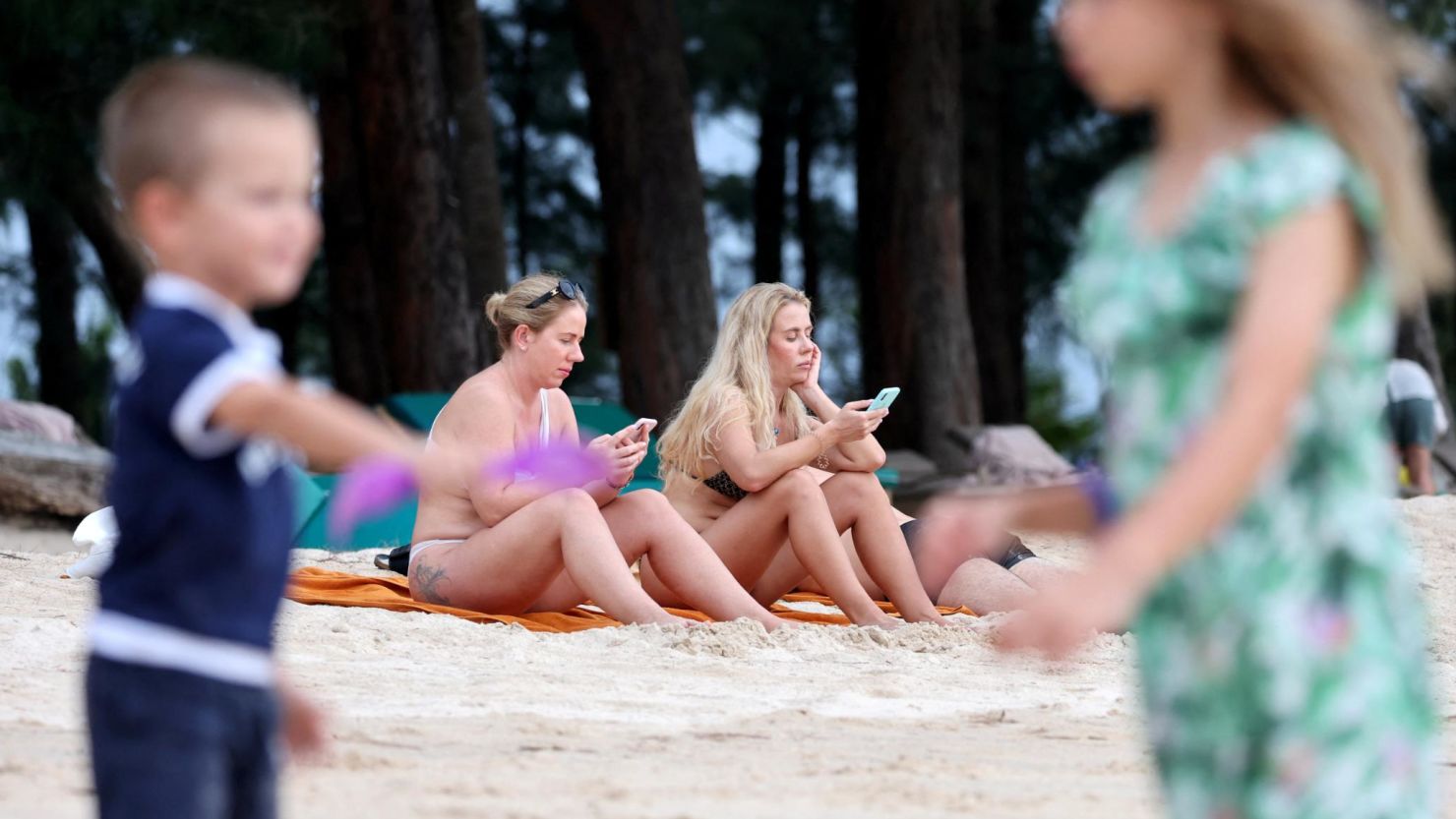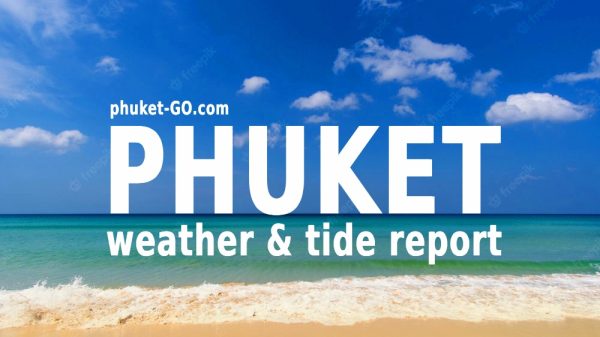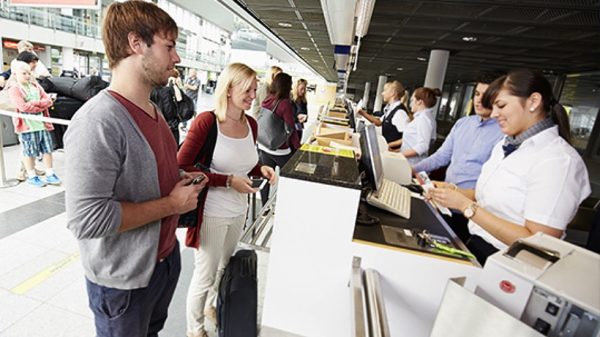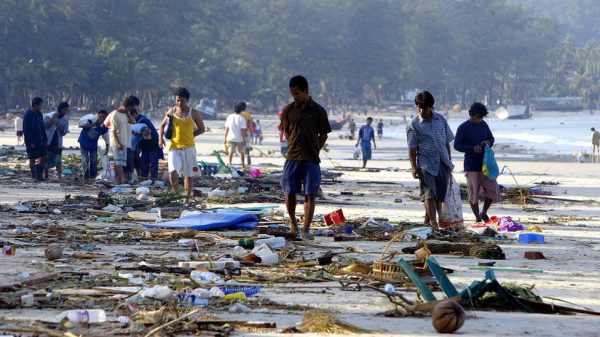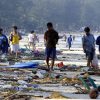The conflict in Ukraine has reached far beyond its borders, affecting not only the lives of those inside Ukraine but also on global markets and economies. Thailand, although remaining neutral on the matter (or BECAUSE it declared a neutral stance) has been an unexpected beneficiary of Russia’s invasion and the ongoing war.
Thailand even took advantage of the situation, extending the usual 30 day visa exemption for Russian passports to 90 days. 60+ other countries only receive a 30 day visa exempt period (extendable for another 30 days). This favouring the Russian tourists has not gone unnoticed by just about every other country on 30 day visa exemptions.
But the appalling situation in Ukraine has ended up as a huge boom in arrivals of Russian citizens and, to a lesser extent, Ukrainians. Many come to Phuket for a short holiday, but a large number are staying and setting up a more permanent residency. This writer has seen many Russian families shopping in Lotus’s for frying pans and mattresses, buying cars and property, lots of property.
Over the past year Russian buyers have been the most numerous in the Phuket property market, by far. Almost single-handedly artificially inflating the value of the market after years of languishing, particularly during the Covid pandemic.
Last year, Russians ranked as the top tourists in Thailand from outside of Asia, with 1.4 million visitors. This year they are running second to the Chinese, but still very prominent at the arrival gates, particularly in Phuket.
So much so, that this surge in arrivals from one particular demographic, has transformed the island’s commercial and social landscape. The areas of Cherngtalay, Bang Tao and Surin are now being nick-named “Little Moscow” – some estimate the population in these areas has doubled in just two years – and places like Chalong and Rawai have witnessed an enormous cultural transformation in the same time.
As an example, rental prices for condominiums and villas have jumped, in some locations, more than 300%, pushing out other long-term expats into cheaper areas on the island or off the island altogether. Go to any real estate office on the island and there will be at least one Russian-speaking agent to service the rise in Russian and Ukrainian enquiries.
Developers can’t keep up with the demand and new condo stock is rising out of the ground as fast as they can build them – many sold off the plan before they can lay the first brick.
And many of these nouveau-tourists are monied, allowing them, in some cases, to circumvent some of the paperwork required by others, aided by corrupt lawyers, officials and agents who ‘smooth’ over visa and business applications.
There’s now a taskforce of immigration and labour officials who have been ramping up the policing of these ‘nominee’ businesses, using Thais to open bank accounts and set up businesses, usually reserved for Thais only. There has been hundreds of arrests this year alone (spurred on after the case of the Swiss man living in Cape Yamu who allegedly kicked a Thai doctor who was sitting on his rented property steps).
Whilst many Thais are reaping the benefits of increased Russian tourist traffic, and new expats, the sudden influx has caused an equally sudden increase in some crimes, dodgy visa applications, and accusations of some local police and officials ‘turning a blind eye’ to various indiscretions.
Applications for the premium Thailand Elite visa options have also been in high demand from Russian citizens looking to stay in Phuket, often with their families, for 5, 10 and 20 years. They’re here to stay.
Cultural clashes and misunderstandings are nothing new to Thais but the Russian visitors have brought their own unique quirks and, in a limited, but highly publicised, number of cases, it has not turned out well and provided the Thai media with plenty of sensational headlines.
Notably, there have been many tensions when enterprising Russian people have tried to set up businesses in competition with the locals – everything from restaurants, tour guides, transportation services and even prostitutes.
The local visa agents and Phuket Immigration admit to being overwhelmed by the huge number of applications for extensions and long term stays. Many are young families, checking their children into the many international schools, setting up home in a bid to protect them from the conflicts and problems back in Russia and Ukraine.
Who wouldn’t want to protect their family and give them the best opportunity?
And whilst the Phuket locals are eager to have Russians spending cash on the island, rent out their villas and eat at their restaurants, the officials are having to clean up the unintended consequences of such a sudden rise in population on the island from just one nationality.
The Tourist Police, often the middle-man helping to sorting out those ‘cultural misunderstandings’, are finding their workload vastly increased, particularly helping with translations.
Thailand, especially Phuket with its many direct, daily flights, remains an attractive destination for Russians seeking escape from the realities of the war in their homeland. Certainly, many of the visitors have also been potential conscripts, running from the possibility of being sent to the front line in a war they never wanted or even support. Given the option of getting shot at or sitting on a Thai beach… I know which one I would choose.
But as the list of local tensions, arrests, reports of clashes, immigration transgressions and overstays mounts up, Thai officials will have to balance its unquenchable thirst for more tourists vs keeping peace and order and rooting out the rising tide criminal activities.
Walking down Patong’s very own walking street, Bangla Road, it’s hard not to notice the Russian touts, Russian-language signs, Russian-owned clubs and even Russian prostitutes. Of course they’re catering for the flood of Russian tourists who dominate the late evening strollers along the lucrative 500 metre stretch of prime ‘red light’ real estate. And many of the established Thai overlords who have run Patong for decades aren’t happy.
For now, the Thais are simply outnumbered.
The uptick in reports of criminal activities involving Russian nationals, earlier denied but now openly reported in local media, has drawn a lot of attention and makes good headlines. But, as the most numerous expats and tourists on Phuket as of now, the number of transgressions from this demographic will obviously be statistically higher.
In fact, the numbers are still quite small, fewer than .001% of total Russian arrivals (a national statistic, not Phuket alone) getting arrested or being deported.
On the plus side there have been very few reports of either Russians or Ukrainians bringing their conflicts to Phuket. Russian ‘owned’ restaurants welcome Ukrainian customers and visa versa – a potential tinderbox averted because both sides realise their good fortune in being able to visit and live in a tropical haven.
But officials have openly acknowledged the societal differences and, it would appear, to be cutting the new crop of expats some cultural ‘slack’ as they settle in and acquaint themselves with the Phuket life.
The island’s upscale Laguna development, with its long lines of Legoland-perfect villas and golf courses, is now 50% occupied with Russian customers. Of course the management have employed Russian-speaking staff to cope with the day-to-day enquiries and issues, a situation reflected across thousands of hotels and businesses on the island wanting to get their slice of the Russian pie.
What does all this mean for the future of Phuket?
There is no sign that Thailand is likely to remove the welcome mat for Russian citizens – Russia remains the only country that was granted 90 day visa exemptions (up from 30) over the past decade. And the Thai governments’ much-criticised neutral stance, in relation to the Russians invasion of Ukraine and the ongoing conflict, also appears set in stone, at least for the foreseeable future.
Given the enormous investment of Russian Rubles into the Phuket economy in just 18 short months, the madness of the last year and a half may slow down but is poised to consolidate with the strong arrival numbers continuing and more and more Russian people settling in, opening businesses and becoming a part of the vibrant Phuket expat community.
There have been many waves of different nationalities making an impact on the island – they come and go. This time there is a geopolitical conflict driving the sudden rise of both tourists and long-term visa holders. How that eventually unfolds or resolves may impact how long the so-called Phuket Russian Invasion will last.
For now, the arrivals continue, new friendships are being forged and the Russian impact on the expat community becomes less of a cultural shock and more of a new island trend.

